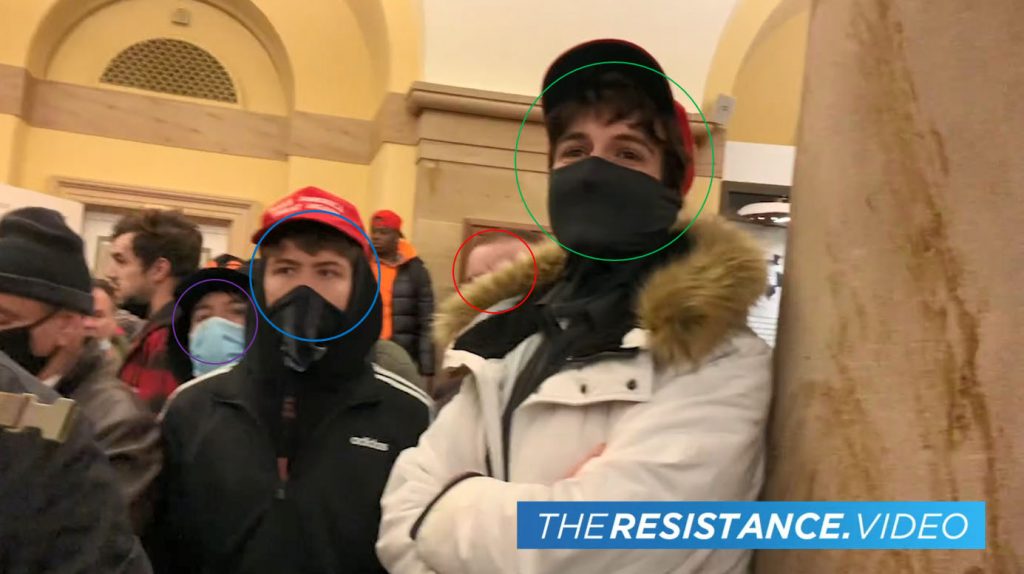Jon Lizak, the former president of Binghamton University’s College Republicans, was sentenced Friday for his involvement in the 2021 U.S. Capitol riot.
Along with four other men, Lizak entered and remained in the Capitol Complex for around 30 minutes, according to a Department of Justice sentencing memorandum filed on Aug. 31. At one point, security footage showed Lizak and his codefendants in a conference room in the office of Rep. Nancy Pelosi, the then-Speaker of the House. On May 22, he pled guilty to a single count of “parading, demonstrating or picketing in a Capitol Building,” a misdemeanor offense, and on Oct. 13, he was sentenced to 36 months probation and a special assessment of $10.
Lizak’s defense memorandum argued for a probationary sentence as the best course of action, contrasting the DOJ memorandum, which conveyed the government’s request for a 75-day sentence and $500 in restitution. The document expanded on the specifics of the criminal case against Lizak.
“One of the most important factors in Lizak’s case is that he and his group spent significant time in the U.S. Capitol building, accessing and entering numerous sensitive areas including Speaker of the House Pelosi’s conference room,” the memorandum read.
After 2:51:40 p.m., Lizak’s group exited the building through the Senate Carriage door, after which the group proceeded to the north side of the Capitol. One of Lizak’s associates, Joseph Brody, 23 of Virginia, used a metal barricade to assault a police officer, while Lizak was nearby, according to the DOJ filing. Afterward, images showed Brody, with Lizak nearby, in the middle of a pile of destroyed media equipment on the Capitol grounds.
Arthur O’Sullivan, the College Republicans’ treasurer and a senior double-majoring in biology and classical studies, denounced Lizak’s actions at the Capitol and said the legal consequences were justified.
“Having read his case file and conviction, I believe that Lizak got his just desserts,” O’Sullivan said. “He clearly knew what he was doing, and caused significant damage in the wake of his crimes. Hopefully this case will be a deterrent against all forms of political violence.”
During his time at BU, Lizak joined a suit filed against the University by the Young America’s Foundation and the College Republicans — the organization he was president of. The suit stemmed from a November 2019 Turning Point USA and College Republicans joint tabling event, when a display of pro-gun signs was met with student protest. Lizak graduated from BU in May 2022, according to a filing from Kevin Keating, his attorney. Keating did not respond to a request for comment.
Gregory Robinson, the chair of the political science department and an associate professor of political science, said that misinformation can impact a broad subset of the population.
“One thing to keep in mind is that while there is a stereotype that election deniers […] are middle-aged and older, conspiratorial thinking is something that all people, including college-age young adults, are susceptible to,” Robinson wrote in an email. “I think our University, and every college and university for that matter, hopes that among the skills our students will learn are critical thinking and information literacy.”
The DOJ memorandum read that Lizak had not made any statements showing remorse for his actions on Jan. 6. Less than a month later, on Sept. 25, the defense memorandum included a statement from Lizak, where he stated “I was wrong.”
Robinson expanded on the current political climate’s impact throughout society, saying that when people “desperately” want something to be true, it can be difficult to convince them otherwise.
“Unfortunately, whether it’s on college campuses or anywhere else, this all seems like it’s going to get worse before it gets better,” Robinson wrote. “We cannot have one of our two major parties refusing to acknowledge election results unless they win. We cannot long survive the Republican Party excusing the lawlessness of Donald Trump, both because of the direct harm it causes to our democratic institutions, but also because of the example it sets for grass-roots actors.”



